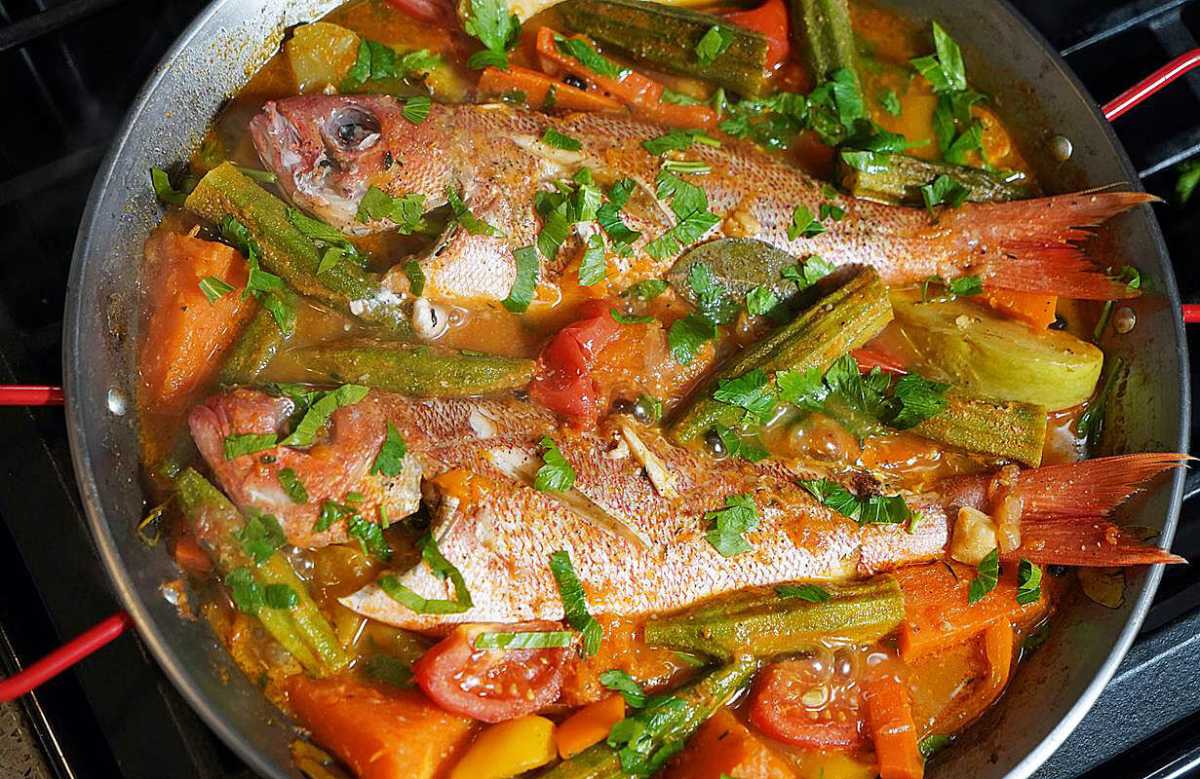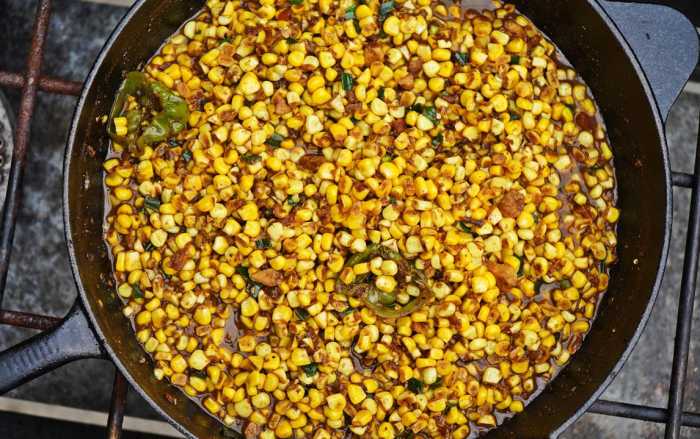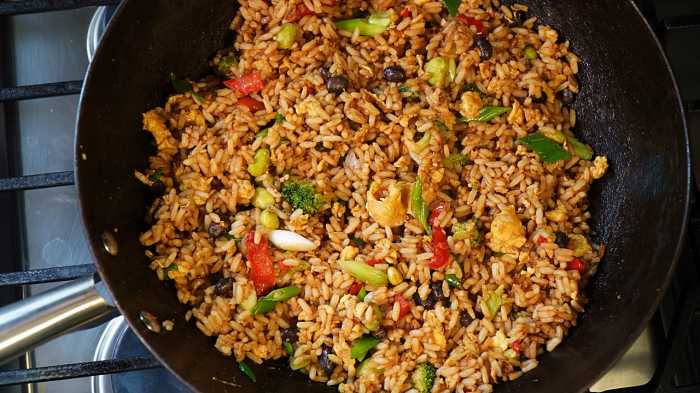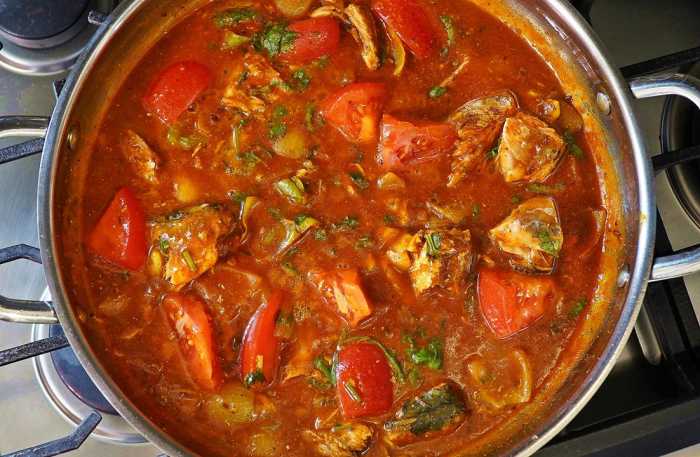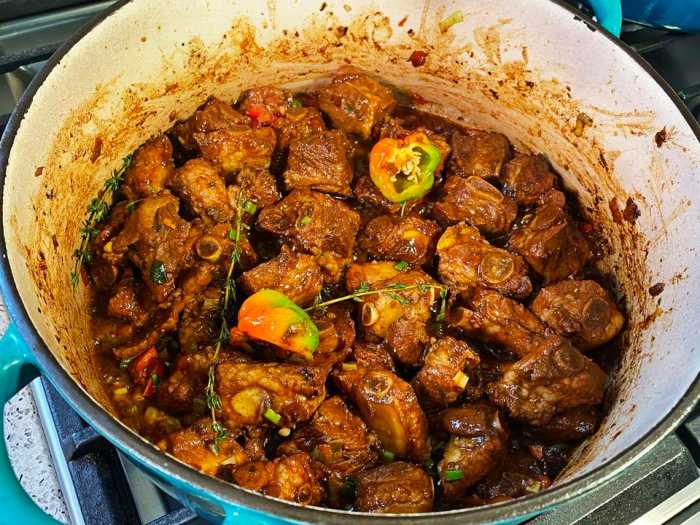There’s always the call for more fish recipes from fans of my work and I really wish I could share others. While lake and river fish (what I call sweet-water fish) are very accessible in Ontario, I’m not a fan of them. I find that they lack flavor and the texture tends to be very mushy. And YES, I can secure ocean or salt water fish at the different West Indian and Asian markets, but most days they’re VERY expensive. I don’t mind paying the price eh.. however I’m the only one in my home who eat the stuff, so logically it makes little or no sense to spend the money. The only fish my daughters will eat is their grandmother’s fried King Fish. Hopefully I can get Zyair on the fish train soon.
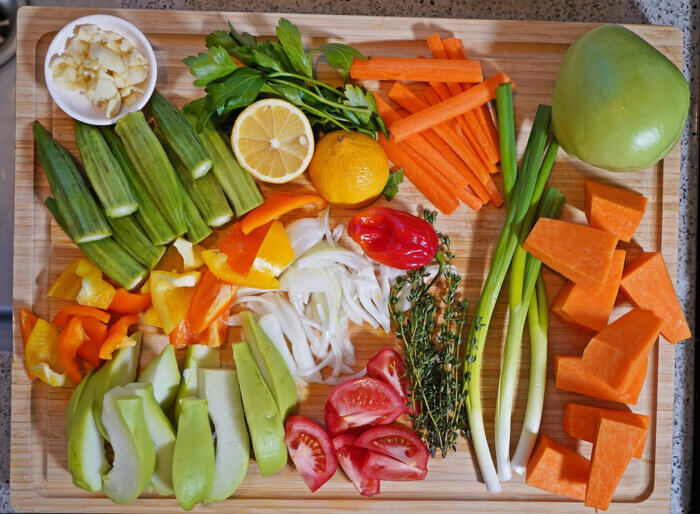
You’ll Need…
2 red snapper (about 3/4 lb each)
8 sprigs thyme (divided)
4 scallions
1 medium onion (sliced)
1 medium tomato (diced)
2 cups fish stock
1 teaspoon sea salt (divided)
1 teaspoon black pepper (divided)
8-12 okra (trimmed)
1/2 yellow bell pepper (chopped)
1/2 orange bell pepper (chopped)
5 cloves garlic (smashed)
2 tablespoon Olive oil
1 lb pumpkin (large cube)
1 medium christophene aka chayote, chocho (sliced)
1 lemon (divided)
1/2 lime
2-4 tablespoon coconut cream
1/2 scotch bonnet pepper
8 Pimento berries (allspice)
2 bay leaves | 1 tablespoon tomato concentrate puree
1 carrot (small) (julienne)
2-3 tablespoon parsley (chopped)
Notes. I encourage you to personalize things according to your likes and be as creative as you like. If doing this recipe gluten free, please go through the full list of ingredients to ensure they meet with your specific gluten free dietary requirements (especially the fish stock you use). May I recommend you use the video below as a guide when preparing the recipe in the event you have any further questions not covered in this recipe post.
VERY IMPORTANT! – Lovingly called “steamed”, but in fact it’s somewhat simmered in liquid and not technically steamed. Here is my truly Steamed Fish Recipe.
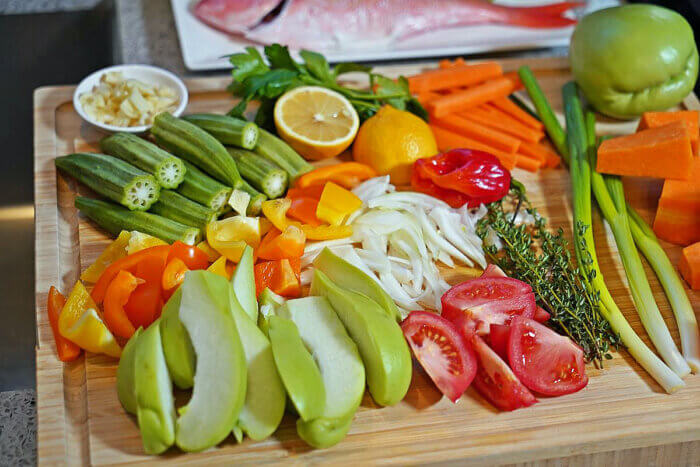
Wash, chop and generally prep all of the ingredients.
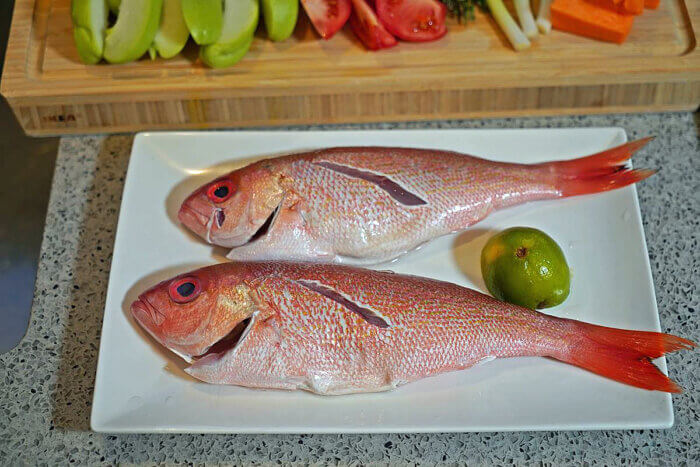
Clean and wash the fish with cool water and the juice of the lime, then make a cut across the belly (thickest part – both sides) of each fish to allow for even cooking and for the flavors to go deep within the flesh later. Season with the 3/4 of the salt and 1/2 of the black pepper (in and out), then stuff the cavity with 1/2 of the thyme and 1 scallion each. I explained why I don’t use all-purpose seasoning in the video below.
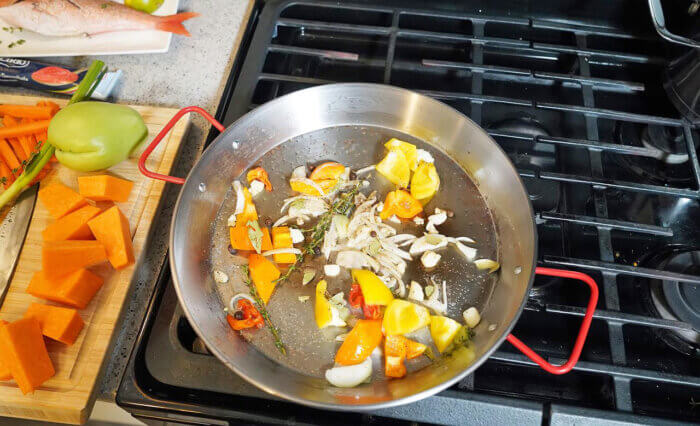
Most recipes online will tell you to start with butter, but being mindful of salt, saturated fats etc, I opt for olive oil. In a wide pan on a medium heat add the oil, followed by the onion, remaining thyme, bell peppers, remaining black pepper, scotch bonnet pepper, allspice berries (aka pimento seeds), bay leaves and the remaining salt (you may adjust later on). Turn the heat down to low and cook for 2-3 minutes.
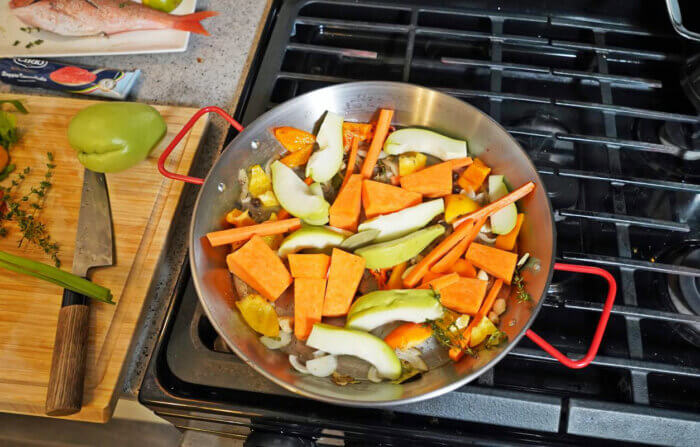
It’s now time to add the pumpkin, carrot and Christophene and mix well. After 2-3 minutes, make space in the center of the pan and add the tomato paste. Yes this is not an ingredient traditional to the recipe, however with my tested application I can tell you with certainty it works well. Making that space in the pan means the tomato paste will be in direct contact with the hot pan, thus the natural sugars in the tomato will shine through with the caramelization.
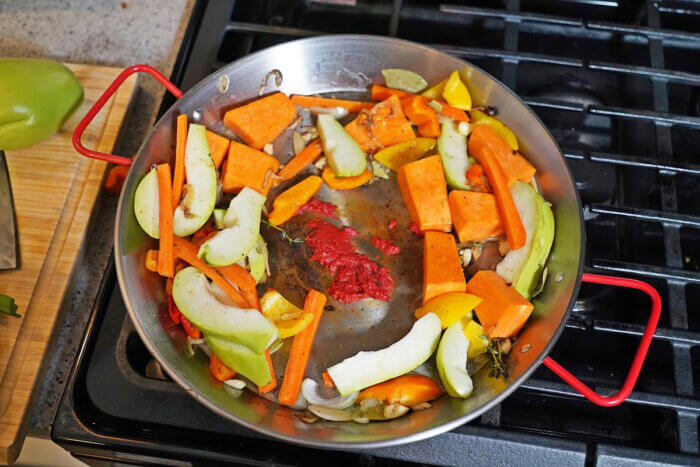
After 2-3 minutes stir everything well, turn the heat up to medium and add the fish stock. Bring to a boil, reduce to a simmer and allow it to cook for about 7 minutes. As it comes to a boil add the remaining scallions, garlic and coconut cream. Reduce to a simmer.
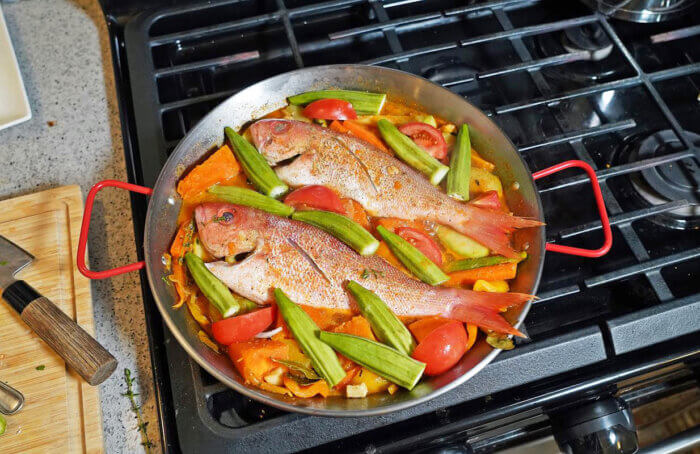
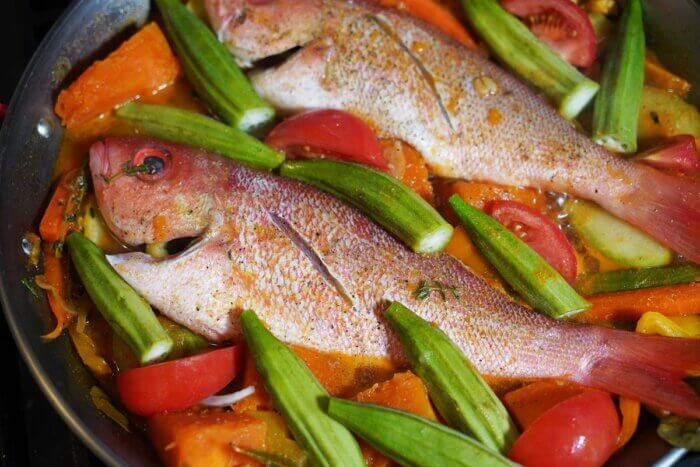
It’s now time to tuck the seasoned fish into the pan as well as the tomato and okra. With the okra (say ochro) you’ll want to trim off the stems and I like to also trim off the pointy ends. Try your best to tuck everything into the liquid in the pan as best you can. You’ll want to try and spoon on some of that liquid onto the fish before putting a lid on the pan.
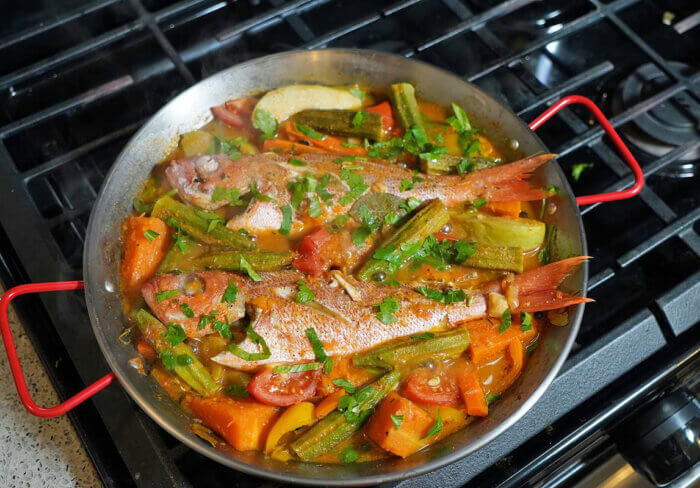
I used a pan which I didn’t have a lid for, so I used a cookie sheet to cover the pan. Should that fail, use foil to make a temporary lid.
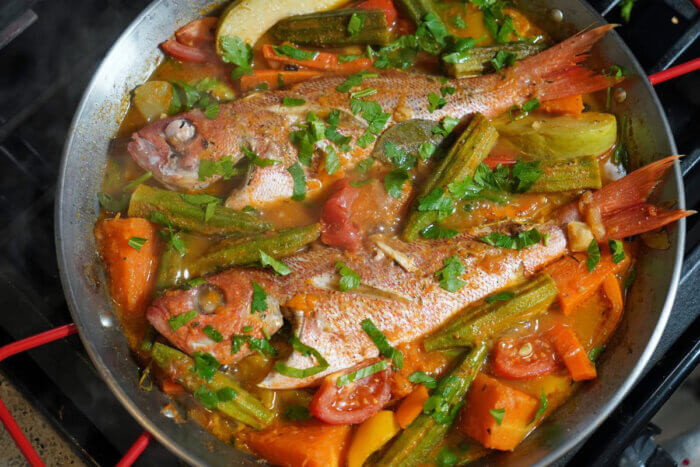
Depending on the size of the fish you used, in about 10 minutes they will be fully cooked. As you turn off the stove be sure to spoon on some more of that liquid on the bottom over each fish. Keep in mind that the residual heat in the pan will continue cooking the fish. Top with the lemon juice and chopped parsley!
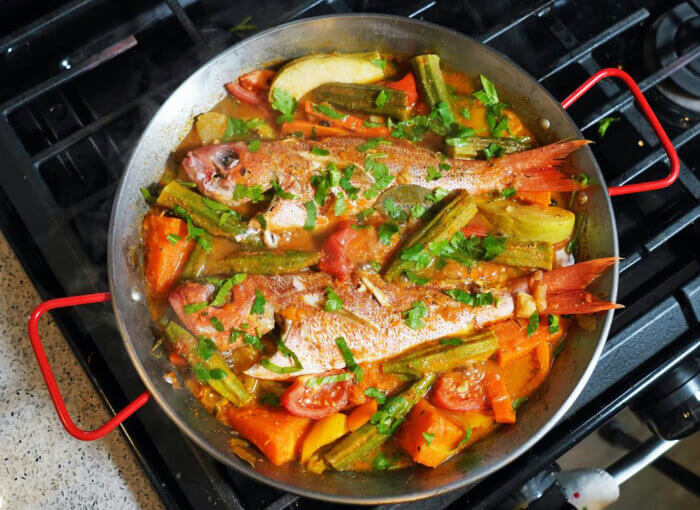
A classic fish dish out of the Caribbean, with it’s origin being Jamaica but with versions found throughout the region.
Source:caribbeanpot.com


